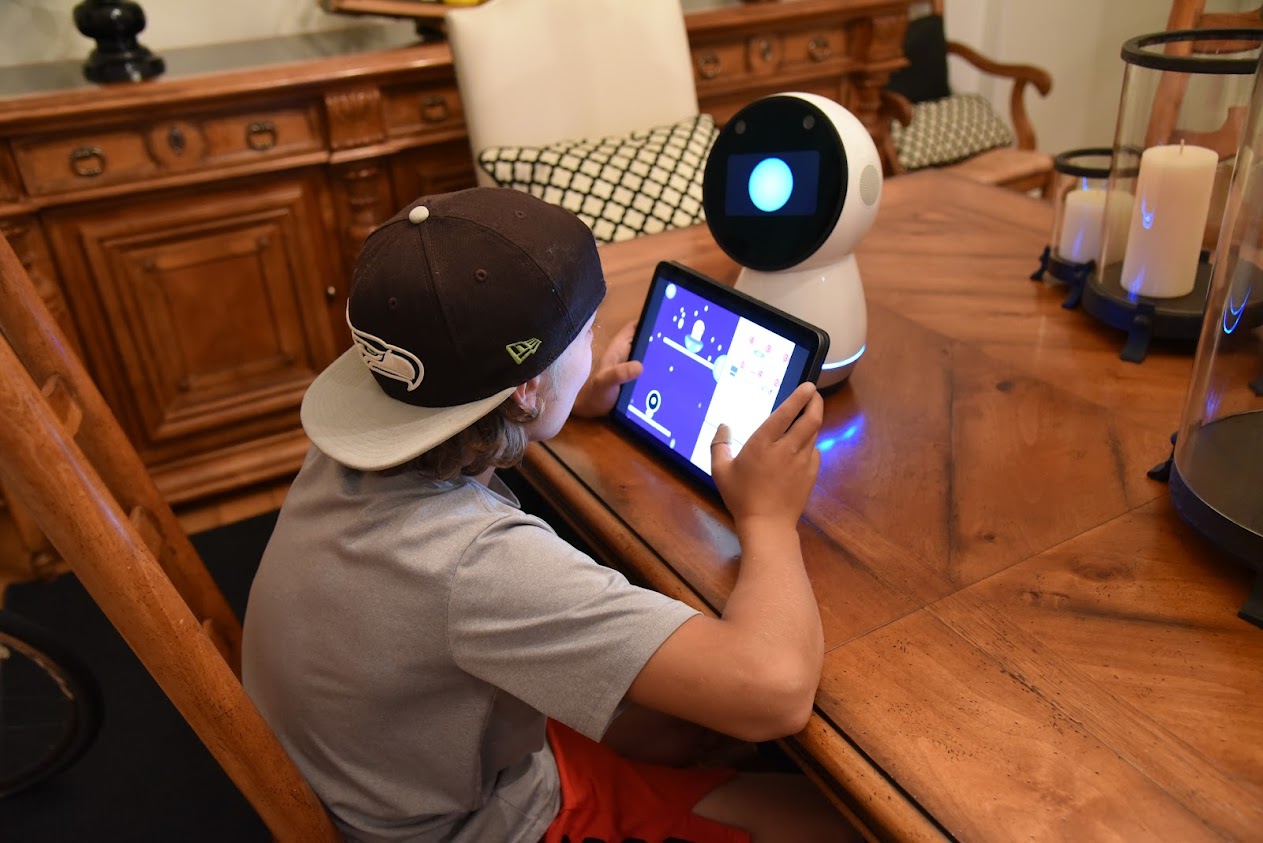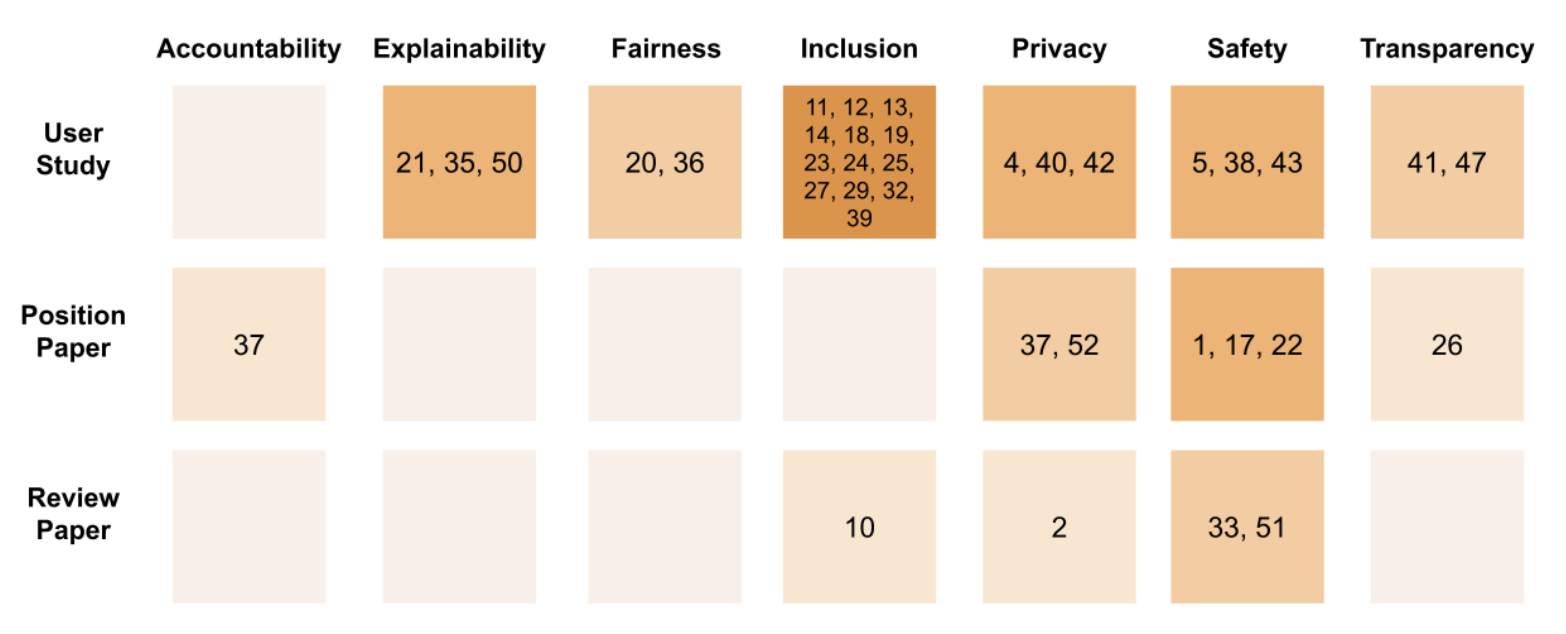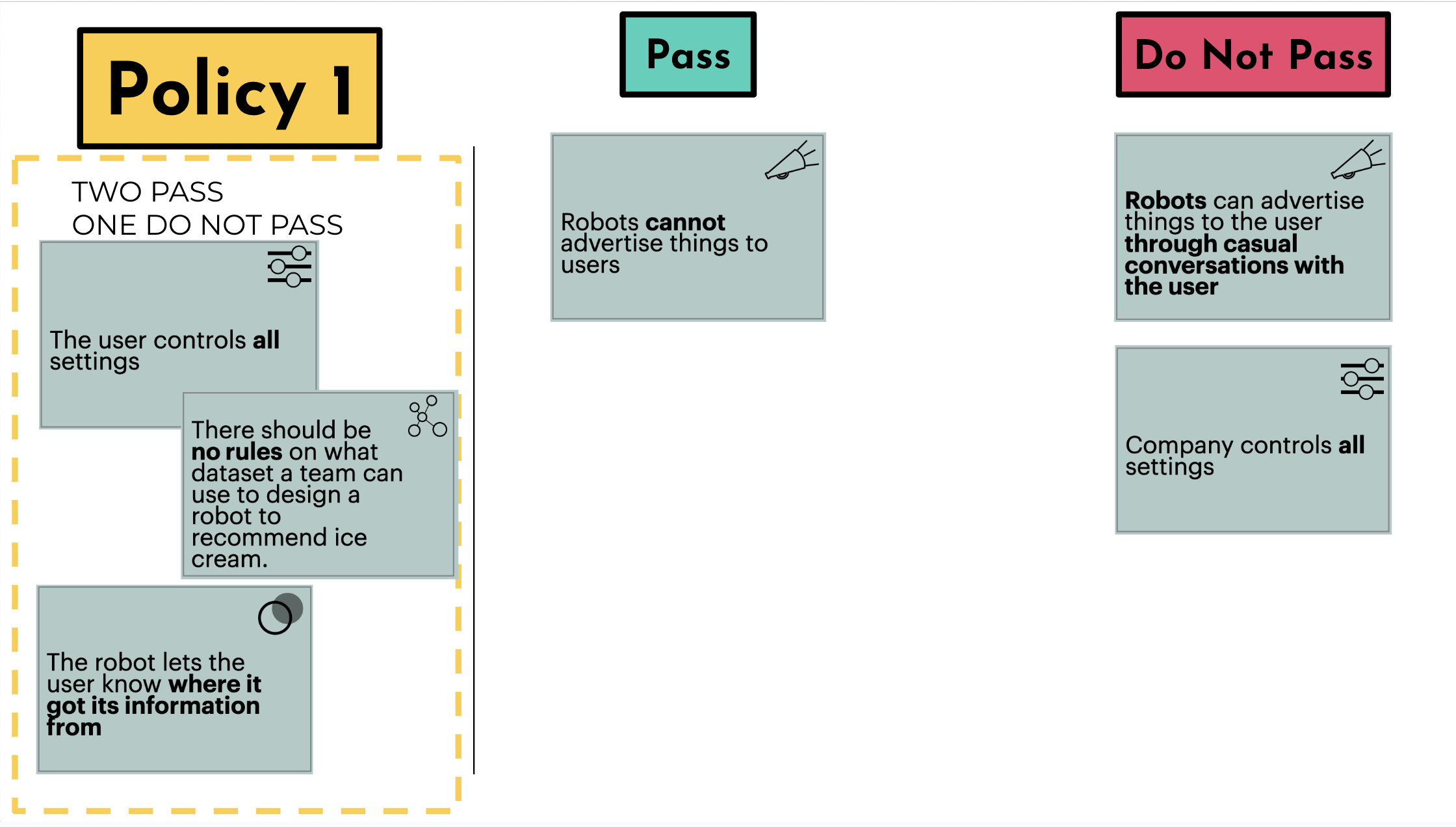Research Projects

Image credit: Meg Leta Jones
Socio-digital vulnerability refers to the susceptibility of individuals and groups within mediated environments to decisional, social, or constitutive interference. In this work, we bring together a set of existing phenomena on mediated environments to identify how technology that is designed to be social, renders us vulnerable. In collaboration with Professor Ryan Calo.
WeRobot 2023 (preliminary draft) |
Legitimacy in an Online World Workshop

Image credit: Daniella DiPaola
These projects address the ways that socially embodied interfaces
might impact traditional advertising practices. In collaboration with Anastasia Ostrowski and Kate Darling.
alt.HRI 2022 |
WeRobot 2022 (preliminary draft)

This systematic review looked at the ways that children's fundamental AI rights, as defined by UNICEF, have historically been addressed in child-robot interaction research. In collaboration with Vicky Charisi and Professor Selma Sabanovic.
HRI 2023 Short Paper

Social agents are becoming more popular and are generating new legal and policy issues. The Robot Policy Design Toolkit is a design research tool to allow any generation to design and consider how we can develop policy for social robot technologies around nine ethic topics. It has been tested with children, older adults, and technology developers. In collaboration with Anastasia Ostrowski.
Project Overview
Selected Publications
AI Literacy
What are GANs?: Introducing Generative Adversarial Networks to Middle School StudentsAli, S.*, DiPaola, D.*, and Breazeal, C.
EAAI 21
paper
Ali, S. DiPaola, D., Lee, I., Sindato, V., Kim, G., Blumofe, R., & Breazeal, C.
Computers and Education: Artificial Intelligence 2021
paper
DiPaola, D.*, Payne, B.H.*, & Breazeal, C.
IDC 2020
paper
Human-Robot Interaction
Children's Perspectives of Advertising with Social Robots: a Policy Investigation.DiPaola, D., Ostrowski, A. K., Spiegel, R., Darling, K., & Breazeal, C.
HRI 2022
paper
Ostrowski, A. K., DiPaola, D., Partridge, E., Park, H.W., & Breazeal, C.
IEEE Robotics & Automation Magazine 2019
paper
Law and Policy
Socio-Digital Vulnerability DiPaola, D., Salazar-Gómez, A., Abelson, H., Klopfer, E., Goldston, D., &Breazeal, C.
MIT Schwarzman College of Computing and the MIT Washington Office AI Policy Briefs
paper
DiPaola, D. & Calo, R.
WeRobot 2023
paper
Darling, K. & DiPaola, D.
WeRobot 2022
paper